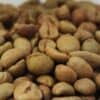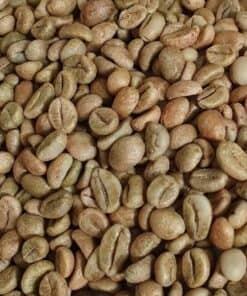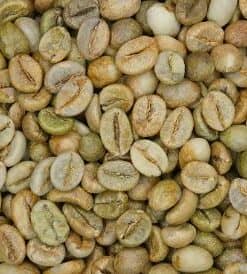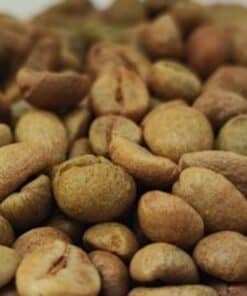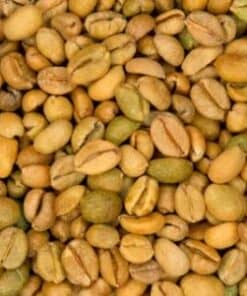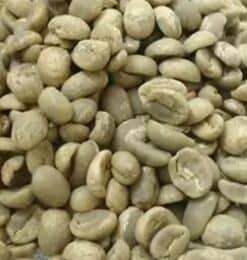Excelsa Coffee Grade 2 Coffee Beans Premium
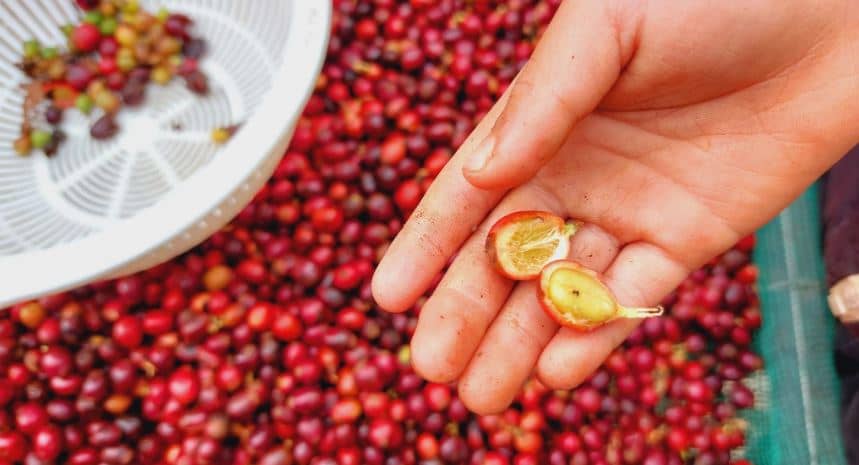
Explore the exceptional flavors of Excelsa Coffee Grade 2, a unique and rare Vietnamese coffee variety grown in the lush regions of Vietnam. As part of the Liberica family, Excelsa coffee is cherished by connoisseurs for its intriguing flavor profile and bold characteristics.
Tasting Notes of Excelsa Coffee Grade 2
This Grade 2 Excelsa coffee offers a complex, rich cup with distinct flavors. Expect prominent notes of ripe dark fruits such as plums and blackberries, combined with smoky, woody undertones and a mild tartness. As the coffee cools, enjoy subtle hints of dark chocolate and a smooth, full-bodied texture. The lower acidity of this coffee makes it a perfect choice for those who prefer a smoother, easy-drinking coffee with a unique twist. The Excelsa coffee’s bold, untamed flavors set it apart from more refined varieties like Arabica, delivering a wild and satisfying experience.
Cultivation of Excelsa Coffee in Vietnam
Excelsa coffee trees are tall, reaching up to 15 meters, with large, robust leaves. These trees take about a year to mature, longer than Robusta or Arabica beans, making them more resilient to pests and diseases like coffee leaf rust. In Vietnam, Excelsa is primarily cultivated in the Central Highlands regions, including Lam Dong and Dak Lak, where the ideal climate and soil conditions foster its growth. Excelsa coffee’s resistance to diseases and its adaptability to lower growing elevations (1000-1300 meters) make it an excellent choice for farmers dealing with climate change challenges.
Roasting and Brewing Techniques
Roasting Excelsa coffee beans requires special attention due to their lower solubility compared to Arabica. A medium roast is ideal to bring out fruity, wine-like notes, along with woody and roasted corn flavors. For a richer cup, a darker roast will emphasize the chocolatey and creamy undertones. Use proper brewing methods such as pour-over, French press, or AeroPress to fully enjoy the distinctive flavors and aromas of this unique coffee.
Specialty Coffee Potential of Excelsa
While Excelsa coffee is not as widespread as Arabica or Robusta, its distinctiveness has drawn significant attention in the specialty coffee market. The scarcity and unique flavor profile of Excelsa position it as an attractive option for coffee enthusiasts looking to explore rare and exclusive varieties. Bring the diverse, unrefined flavors of Vietnam’s coffee heritage into your cup with Excelsa Coffee Grade 2.
Key Characteristics of Excelsa Coffee
- Origin: First discovered in Central Africa in 1903, Excelsa was reclassified in 2006 as a variety of the Liberica species.
- Plant Characteristics: Tall trees up to 15 meters, large leaves, and asymmetrical beans averaging 9x6mm.
- Flavor Profile: Complex with pronounced fruity notes like cherry and blackberry, mild tartness, smoky, woody flavors, moderate bitterness, and a full-bodied finish.
- Benefits: Lower caffeine content than Arabica and Robusta, resistant to some diseases and pests.
- Challenges: Limited cultivation, lack of awareness, and no standardized pricing.
- Potential: Ideal for specialty coffee, resistant to climate change, and a valuable genetic resource for research.
Certifications
- Rainforest Alliance Certified
- Fairtrade Certified
- USDA Certified
Explore Vietnam Robusta Coffee: Bold and Unique Flavors
Vietnam is renowned as the world’s leading producer of Robusta coffee, particularly from the Central Highlands regions like Dak Lak, Gia Lai, and Kon Tum, where nearly 90% of the country’s coffee is cultivated. Vietnam’s Robusta coffee is famous for its bold flavors, high caffeine content, and low acidity, making it a favorite among coffee lovers around the world. Discover the diverse flavors of Vietnamese Robusta coffee and explore its unique regional characteristics, from silky notes of butter to the earthy essence of the highlands.
Certifications and Quality
Vietnam’s coffee industry is known for its dedication to quality and sustainable practices. Excelsa Coffee Grade 2 meets the highest industry standards and is certified by Rainforest Alliance, Fairtrade, and USDA, ensuring that it is both environmentally friendly and ethically sourced.


